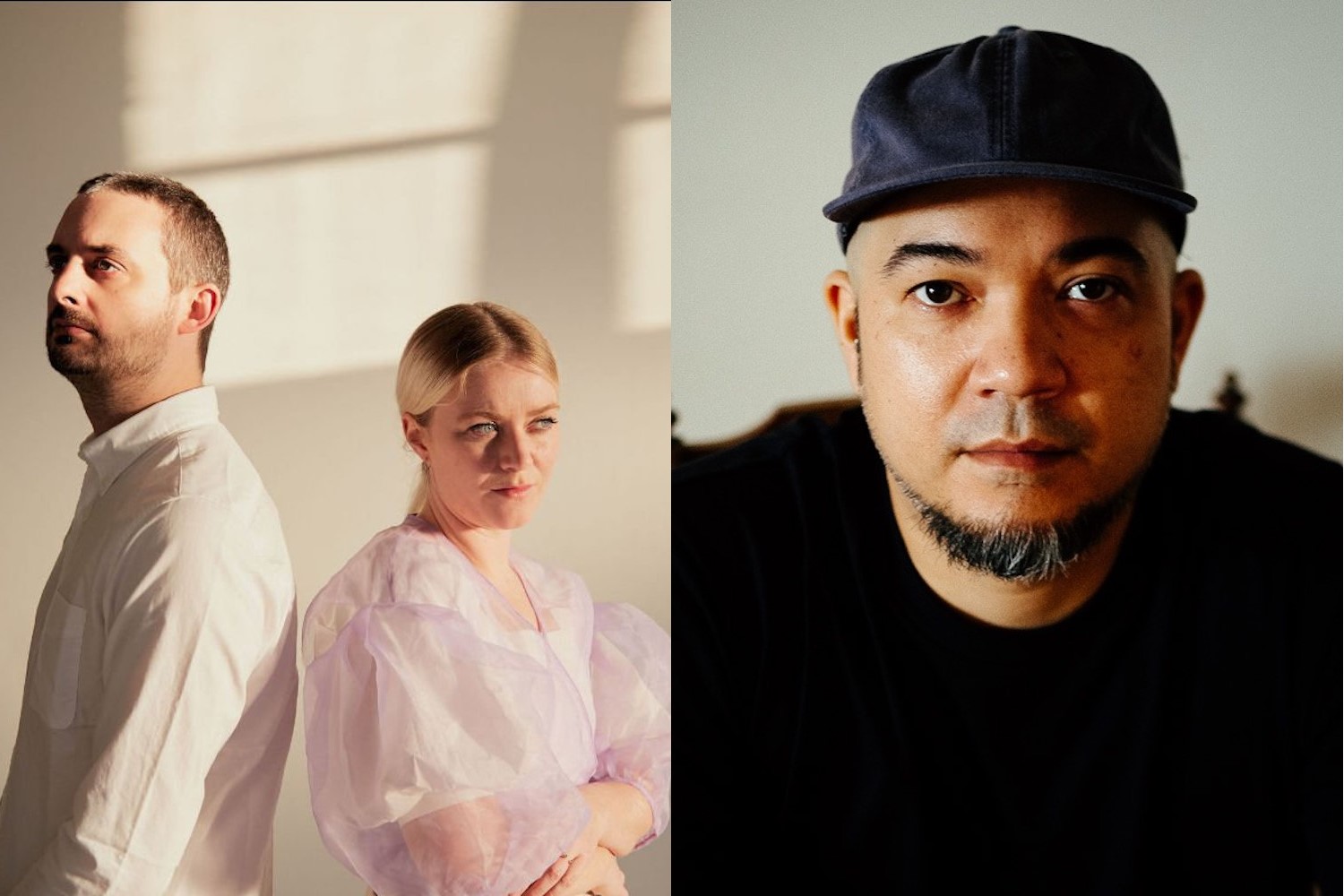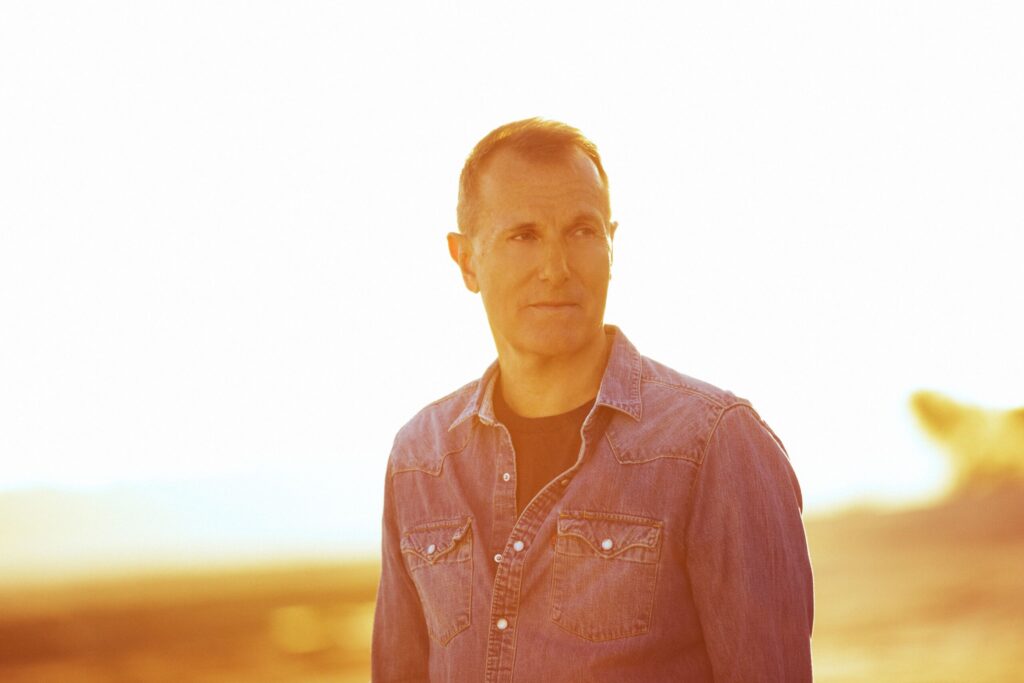With our liberties curtailed, our listening choices took on extra weight in 2020.
Not only did we turn to music for entertainment and intrigue, but we also wanted it to transport us and provide much-needed company.
For musicians, it was an often uncomfortable and disorienting year. Live performance was prohibited and live streams could very easily become an alienating experience – it’s difficult to adapt to playing to an invisible crowd accentuated by flickering thumbs-up and heart emojis.
Releasing music also brought about novel challenges. After all, the act of self-promotion began to feel entirely incongruous in the midst of a global pandemic, a growing movement for Black rights and against the intensifying spectre of climate change.
But there was no shortage of excellent Australian releases in 2020. The bulk of them were created prior to shit hitting the fan, but their arrival during this time of uncertainty and digital saturation has given 2020 some much needed experiential depth.
I spoke to a lot of musicians this year about their latest albums, learning about their evolution and artistic intentions. Here are ten of the best on how they made their 2020 releases.
Snowy Band – Audio Commentary
Snowy Band is the brainchild of Melbourne’s Liam Halliwell, who you might know from The Ocean Party, Ciggie Witch and No Local. Snowy Band’s debut album, Audio Commentary, came out in March 2020 and features invaluable contributions from Emma Russack (guitar/BVs), Dylan Young (Way Dynamic; drums/BVs) and Nathalie Pavlovic (Dianas; bass/BVs).
It’s a beautiful and tender indie-pop record made up of songs Halliwell had written without any real ambition of releasing them.
“I started writing the songs at the end of 2018 and it was a very casual and self-contained process,” he says. “I was just writing this stuff for myself. With everything that had happened with The Ocean Party and with Zac [Denton] passing away, and I had taken a break from the other bands that I was playing in as well, I found myself in this spot where I wasn’t writing for anything in particular.
“I didn’t think I was writing an album or songs for a band. They were just for me to be playing in my bedroom.”
At the urging of Russack and Pavlovic, Halliwell eventually decided to record and release them under the Snowy Band moniker.
“I was doing some recording with Emma Russack [and] she said I should get a band together,” he says. “Nathalie, my girlfriend, had said the same thing. I’d been playing music with Emma and Dylan for ages and they both volunteered to play in my band. I got offered a gig and the only material I really had or wanted to use was what I’d been working on without any prior assumptions. And I guess the next logical thing to do is to record that stuff, to document it.”
Simona Castricum – Panic/Desire
Melbourne synth-pop/rave musician Simona Castricum released her third full-length effort, Panic/Desire, in June. It’s a concept album that serves as “an allegory about gender nonconformity lived in the spaces between urban and digital realms,” while also encompassing synth-pop, dark wave, queer electronic disco and some more abstract soundscapes.
Panic/Desire is a substantial step away from Simona’s previous album, #TriggerWarning40.
“The main thing that’s changed has been moving into academia and that opportunity to move into academia has enabled me to think about what I’m doing in a much deeper context that’s not just about some kind of basic emotional response,” Simona says. “So this record is thinking about more profound ideas or more intellectual ideas behind emotion and behind experience.
“Maybe I’m proposing something a bit more philosophical or a bit more political rather than it just being about vulnerability.”
Panic/Desire is not just a concept album, but the soundtrack to Simona’s PhD in architecture.
“I knew there were songs I wanted to write that articulated my experience or imagination of the city and my experience as a gender-nonconforming person in the city,” Simona says. “[The album narrative] almost feels like a week that I might usually have. ‘Supertouch’ is that sort of dancefloor moment and before that is ‘The Present’, which is that moment where sometimes I might have to fight, I might have to stick up for myself.
“‘Monolith’ or ‘Panopticon’, for instance, they’re the moments after where I need to reflect on what’s happened and just try and make some sense of what’s going on around me and think a lot deeper. But rather than them just being these outpourings of aggression or these outpourings of hate sometimes, I was like, ‘I need to go further with this’.”
Rebel Yell – Fall From Grace
Sydney-based electro-punk musician Grace Stevenson released her second album as Rebel Yell in July. It’s a striking body of work that can loosely be described as industrial techno or electronic body music. It’s furious in tone, but also really energising. It contains a lot of distorted, brawny sounds and is very percussive, bassy, and generally high BPM.
The album includes four guest vocalists – Marcus Whale, En V, R-T-Fax and Hayden Dunham.
“It just fits really well – my music with what people come to me with vocals,” says Stevenson. “It’s just really exciting to see how they change the song completely.
“I met Hayden last year and then I reached out to her and asked if she’d like to be on a song. Marcus was funny because I messaged him, I was like, ‘Hey, I’m recording this song. I’ve just put the music down, do you reckon you would wanna do vocals on it?’ And then I sent him a snippet on Instagram and then he replied within an hour with a full song. It was crazy and it’s my favourite song.
“R-T-Fax was a new friend of mine and we just had a jam and I thought, I reckon this should be something that goes on the album. And I’ve been friends with Natasha who’s En V for a long time and always get her to play my shows in Melbourne, so that was quite fitting for that opportunity to come up.”
Blake Scott – Niscitam
Former Peep Tempel frontperson Blake Scott released his debut solo album, Niscitam, in October. Scott’s songwriting grew stranger and more immersive with each of the Peep Tempel’s three albums and this trajectory continues on Niscitam. While there are some boisterous rock numbers, the record’s also distinguished by moments of stripped-back restraint, Factory Records-esque bass lines, spoken word and straight-ahead pop hooks.
The album title is a Sanskrit word that translates to “definite” or “confidently”.
“My partner is a yoga teacher and studies yogic philosophy and through the early demos of ‘Fever’, she thought I was saying ‘niscitam’,” Scott says. “She was like, ‘Oh, it’s such a great word and really fitting,’ and I was like, ‘I don’t know what you’re talking about.’ And then we discussed the meaning and it came back towards the end of the album. After all the doubt and anxiety about the record, it just seemed a fitting title to get it out, be confident and put it out into the world.”
In line with the album title, Scott’s primary aim was for Niscitam to be a bold-sounding album.
“I didn’t want it to sound as though we had just made a Peep Tempel record without the guys in the band,” he says. “The biggest challenge is to make something that I can sit back and know that I tried to keep pushing myself in a creative direction, as opposed to settling for anything. I wanted it to be a bold sounding record, I wanted it to be really lush and I guess confident. And I think we did that – I think it does sound bold.”
Emma Donovan & the Putbacks – Crossover
Emma Donovan & the Putbacks released their second album, Crossover, in November via Hopestreet Recordings. The pairing’s debut LP, 2014’s Dawn, displayed the influence of Sharon Jones and the Dap Kings, Aretha Franklin and various neo-soul artists. Crossover builds on the deep funk and soul of its predecessor, only this time it feels more assured and altogether more potent.
“The relationship is bigger with the Putbacks,” says Donovan. “It’s not just me and Mick [Meagher, bass] hanging out and going to the band. There were some individual ideas that came from Tommy [Martin, guitar], his ideas for ‘Pretty One’, and then Simon Mavin [keyboards], he had some ideas for ‘Crossover’. And then a lot of the other tracks like ‘Leftovers’ and ‘Don’t Give Up On Me’, these were songs that already existed probably even from 2015, like straight after we had Dawn.”
The album includes two traditional Indigenous songs that have been reworked by Donovan and the Putbacks, while ‘Mob March’ pays tribute to the history of Indigenous protest and the contemporary protest movement.
“Tommy came up from Melbourne and we went and sang at the NSW Aboriginal Land Council,” Donovan says. “I think it was a gala dinner or some event where they were acknowledging some of the older mob that had been leading the way of all the big marches here in Redfern and [I was] just seeing all the pictures of the marches back in the day.
“But the other reason I wrote that song is because I’m just proud of marches today. I just feel like there’s more mob involved in our marches than just blackfellas. It inspires me when I see some of the bigger marches now that are in Melbourne, they’re huge. This next generation of Aboriginal mob that are leading some of them marches, they’re just amazing to watch and see.”
Dianas – Baby Baby
Post-punk trio Dianas released their second full-length album in May. It’s called Baby Baby and came five years after their debut self-titled effort. Bass player Nathalie Pavlovic and guitarist Caitlin Moloney started the band in Perth nearly ten years ago. Drummer Anetta Nevin completes the trio and their songwriting tends to showcase each individual’s musical personality.
“Caity would write over half of the songs, but we do work them out together,” says Pavlovic. “We learnt how to play together as well, so I think that’s always going to be intertwined with our sound. Mixing and recording [Baby Baby], it’s never really about one element or anything. We’re just trying to get all those elements to work together.”
Baby Baby came together over a number of years and was released via Pavlovic’s label, Blossom Rot Records.
“We went away almost two years ago and had a little writing retreat out in this farmhouse out in Victoria,” says Pavlovic. “A lot of the songs started taking shape there and it’s just been a slow process since then.”
Sonny – Union: Integration of the Shadow
Sonny is the project of Copenhagen-based Melbourne expat Xavier Bacash. Bacash started Sonny in 2016 just after his old band, Gypsy & the Cat, split-up. He moved to Copenhagen in 2017 and became fascinated with the local underground electronic scene, which had a major influence on Sonny’s debut album, Union: Integration of the Shadow.
“I was pretty much trying to work within the confines of house music initially,” says Bacash. “The second and third [Sonny] EPs were straight-up house music records and barely with any vocals anywhere, but the album was the moment that I’d realised that, actually, I feel like making songs again and singing; like, using my voice.”
Adapting to Danish life and learning to speak the language also influenced Bacash’s artistic outlook.
“There’s an efficiency in the language they use,” he says. “In Australia, if you go to a café and you ask for soy milk in your latte, you’d be like, ‘Hey, would it be okay if you guys… Did you have soy milk? It’d be great to get soy milk.’ You know, you’d just blabber on about shit, whereas in Danish it’s just like, ‘Do you have this? I want it.’
“It’s hard to draw the link probably, but [it made me want to make] more sustainable music. Like, I’d prefer to buy a really expensive keyboard or synthesiser and work really hard on trying to get something out of that than having the best Apple Mac to work on.”
Kuya James – ISA
Darwin musician and producer James Mangohig released his debut solo record, ISA, in September. Well, it’s not strictly a solo project – it’s out under the name Kuya James and nine of its ten tracks feature a guest vocalist. But it’s Mangohig calling the shots for the first time after several years working alongside Caiti Baker, TZU’s Joelistics and co-producing tracks for Daniel Johns, Jessica Mauboy and Gurrumul.
“Often people would say, ‘Do you rap or sing?’ and I’d be like, ‘Nah, I just make beats.’ But over the years I’ve realised that I’m a songwriter and I have visions for things,” says Mangohig. “I just felt like it was the time that I creatively needed to do something like this.”
The name Kuya James calls attention to Mangohig’s Filipino background.
“[Kuya means] older brother in my father’s language and now that community is coming up and there’s more voices coming up, I want to have a production platform much like the Gorillaz – something a bit more collaborative where I get to work with artists and they get to come in and let me be the boss.”
He’s also bringing Filipino and other Asian influences into his productions.
“What I have done is listen to [Indigenous Filipino] music and just meditate on the rhythms and space and often finding also the sounds that come out, like the more traditional Chinese, Japanese, Malaysian samples, finding ways to create that energy, but not having to sample off records. I have learnt as a producer to create the sound of samples through using instruments and other things.”
Gregor – Destiny
Melbourne pop eccentric Gregor released his third album, Destiny, in November. It’s a slightly mellower affair than 2018’s Silver Drop, but carries over many of that album’s stylistic hallmarks. There’s plenty of experimental pop weirdness, reverb-drenched guitar playing and a hint of tranquil new age ambience. There’s also a sense of purity that comes from Gregor’s voice, which complements the spiritually-inclined lyrics.
“I wanted to steer away from straight-up love songs a little bit and zoom out and look at the bigger picture of things, which led down this – for lack of a better word – spiritual, fantasy angle,” Gregor says. “Although without even noticing I tend to go back to love songs even when I’m trying not to make them. It feels like the apex of songwriting – there must be a reason why so many songs that exist are love songs.”
Gregor’s label, Chapter Music, have tagged Destiny as a postmodern take on a concept album.
“I didn’t set out to make a concept album, but I made the songs chronologically as they appear on the album, so it felt like it’s telling a story and different songs reference each other,” Gregor says.
“The first two songs set the scene of this spiritual way of looking at my own feelings and love and then the second two songs of the first side are about loss and regret. And then when you flip the record, the first song on side B is called ‘The Morning Light’, it talks about the light at the end of the tunnel, and from there to the end of the album, it’s all uphill and positive.”
GL – You Read My Mind
Ella Thompson and Graeme Pogson revived their cosmic electro funk-pop project GL with the album, You Read My Mind, which came out in September. Arriving four years after their debut LP, Touch, You Read My Mind is an upbeat, extroverted release with squelchy synths, deep funk and disco grooves and a heckload of pop melody.
“If you think about what the sound of GL is, there’s always a couple of songs on our records that aren’t necessarily like that, but they link,” Pogson says. “On our first EP we had a song called ‘Runner’ and Ella talks on it, it’s got this monotonous synth thing and we used to drop that in the middle of the set because a lot of our stuff is fun and we try to make people feel at ease, but if you can also make them feel tense you can then release that tension again and keep building on the reactions.”
The album was recorded and produced in Pogson’s Fitzroy studio, with an emphasis on having fun, but never taking the piss.
“We really got into making the most squelchy sound possible and pushing that to the point where it’s like, are people just going to think this is ridiculous?” Thompson says. “On ‘Night Habit’ we made a real squelcher with that bass line. There’s always some funny sounds in there, but we’re not taking the piss. I’m very serious about this genre of music and I respect the craft and I respect the work that goes into it and the lineage of people that came before us so that we can just laugh about some sounds.”
Never miss a story. Sign up to Beat’s newsletter and you’ll be served fresh music, arts, food and culture stories three times a week.







